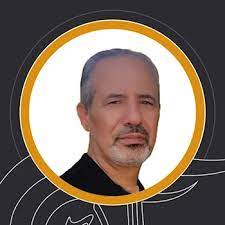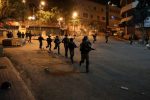Two million people live on the sliver of land along the Mediterranean coast of Palestine that we know as the Gaza Strip. They have endured 14 years of Israeli-led blockade; many of their homes have been destroyed or badly damaged; the infrastructure is shaky at the best of times; there is 70 per cent unemployment and the health sector barely survives. There is a massive humanitarian crisis there and it has been described as a large open-air prison.
It is therefore no surprise to learn that many Palestinians from Gaza try to move elsewhere for work education and medical treatment; or simply to have a normal life. What is surprising though is that most if not all long to return even for a short visit and despite the hardship.
The only viable way in and out of the Gaza Strip is via the Rafah Border Crossing with Egypt. It was opened by the Egyptian authorities in January for the first time in 66 days. According to the Ministry of the Interior in Gaza in the first week of March 1292 people left Gaza through Rafah while 1429 returned to the Strip.
I returned to Gaza the place where I grew up and lived for 24 years in February. The journey was unpredictable and I faced a lot of pressure and restrictions but what I went through was just a fraction of the inconvenience that the Palestinians in the territory face every single day. Once back home I found love and attention; war and peace; life and death; happiness and sadness. The place is full of paradoxes. For the past six years I have lived in many prosperous countries and have tasted the feeling of peace and tranquillity as well as psychological and material stability. However I can’t stop myself from returning to Gaza even for a visit.
My future may lie abroad where I have established myself; where I have friends and earn money; but I can’t ignore my duty toward my family my homeland my Palestinian identity or even my children. One day they will ask “Mummy where is Gaza? Who lives there?” How shall I reply? I know that I will be proud when my children tell their friends “We have visited Gaza the place where our parents and grandparents were born grew learned worked and lived.”
On my way across Egypt towards Gaza I met a Palestinian lady who has lived with her husband and children in Ukraine for more than fifteen years. I was surprised to hear that she has decided to stay in Gaza for more than a year. How can she leave her stable home life for so long? “Gaza is our homeland” she told me. “We might live abroad for many years but we can’t forget Gaza. And the Israeli occupation authorities must not forget that.”
Despite the hardship the Palestinians in the Gaza Strip love life and want the best for their families. The challenging environment there teaches them creativity and resilience skills and characteristics that Gaza demonstrates and then exports to the whole world. Palestinians know a lot about self-reliance when the rest of the world has abandoned them.
Palestinians in the diaspora have taken their place and etched their names alongside some of the world’s greats. Their achievements are many. From medicine to education Palestinians are found at the top of their fields. A Palestinian from the north of the Gaza Strip Louay Al-Basyouni for example was part of the NASA team which sent the “Perseverance” spacecraft to Mars last month.
Israel meanwhile continues to find ways to expel as many of us Palestinians from our homeland as possible. It wants a land emptied of its indigenous people.
Last month Israeli writer Omri Sheffer Raviv wrote in his article in Hebrew on the Regional Thinking forum that Israel encourages emigration from the Gaza Strip. The archives of the Israel Defense Forces contain many files from the military government in the occupied Palestinian territories. These files show that the Israeli government has intensified its efforts to reshape the Palestinian demographics in the Gaza Strip with the aim of annexing the territory without having to absorb a large number of Palestinian residents. According to the plan Israel was in contact with other countries in 2019 to organize an orderly migration from Gaza. As soon as any country agrees to accept immigrants from the territory Israel will establish an airport in the south to transport the Palestinians to their “new home”. So far no country has responded positively.
Raviv also mentioned that the displacement of the Palestinians from the Gaza Strip may be one of the objectives of the intense blockade of the territory. The Israeli government is trying to make life as difficult as possible for the people so that they leave the land of their own accord. “In 2018 after the opening of the Rafah crossing 32000 Palestinians migrated from the Gaza Strip eight per cent of its population at that time ” he explained. Similar strategies are in place in the occupied West Bank and Jerusalem.
While Israel is determined to complete its ethnic cleansing of historic Palestine the Palestinians are even more determined to stay on and return to their land. Like that lady from Ukraine no matter how many years they live away from occupied Palestine it is always home.
Non-Palestinian visitors to the Gaza Strip come away with a feeling that they too are leaving “home”. It has that sort of atmosphere that is difficult to describe. What perhaps makes it clear is the constant desire to return almost as soon as you cross into Egypt and begin the tiring journey across North Sinai towards Cairo Airport.
The story of Gaza — indeed the story of Palestine of which it is an integral part — continues to be unique despite all Israel’s efforts to “transfer” the Palestinians and push them out of their land forever. The occupation state’s plans will never succeed though because no matter what happens Palestine and its people will survive. We were raised to understand who we are and where we come from and we are raising our own children in the same way. As long as the Rafah Border Crossing is open it will be busy in both directions. Palestinians may leave the Gaza Strip but they can’t wait to get back.
– Eman Abusidu is MEMO’s correspondent in Brazil.













